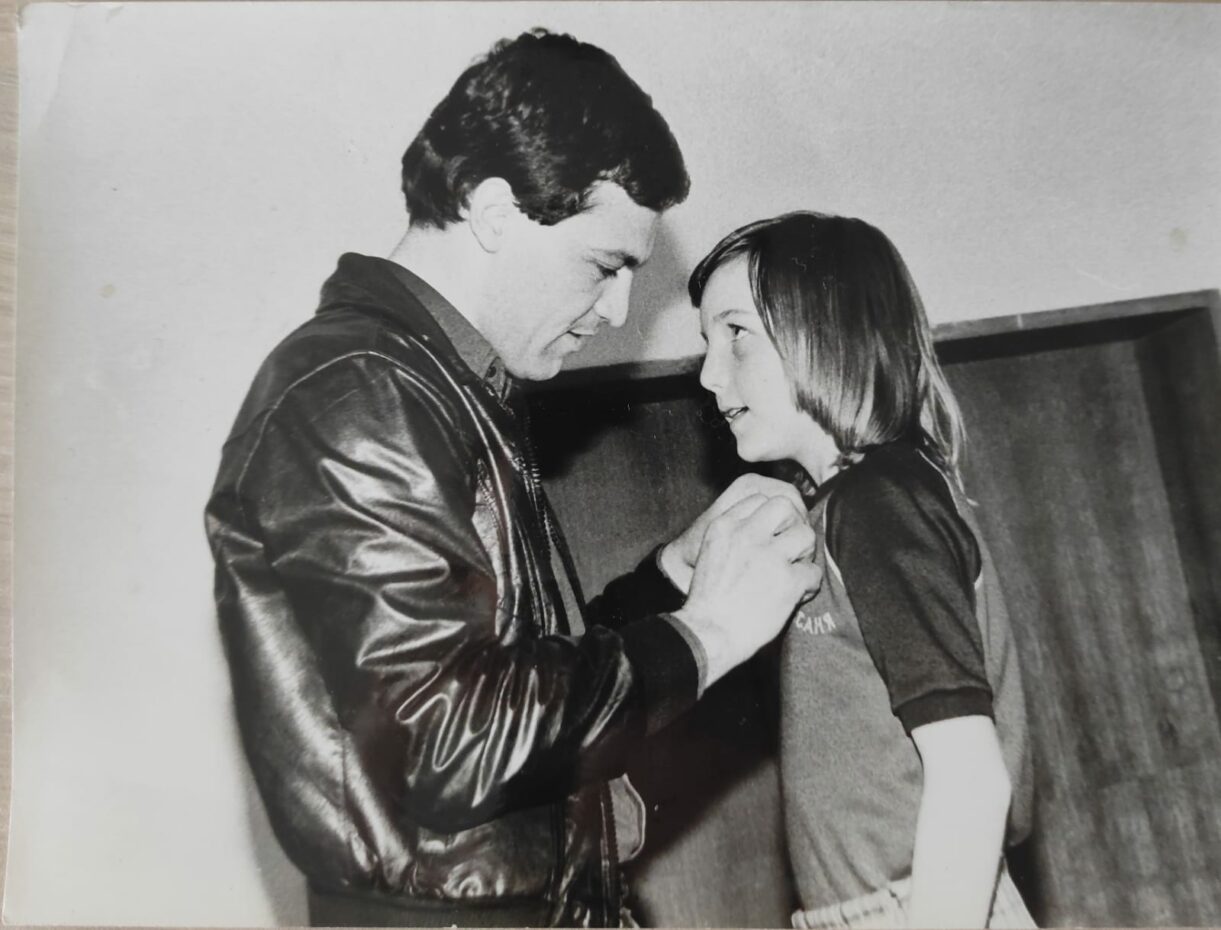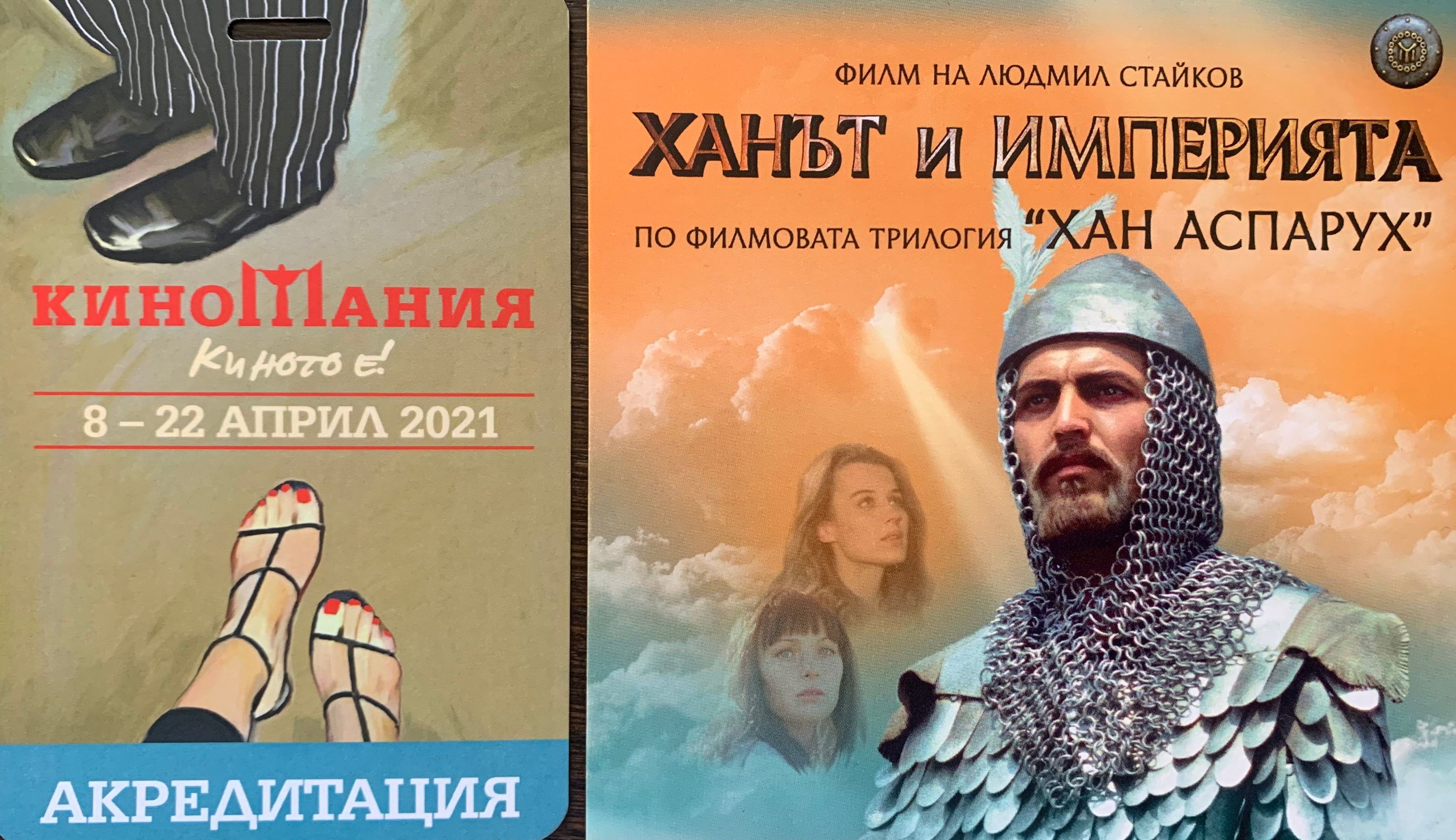Historical revival of a classic, and what it means to be Bulgarian
Written and photos by Siana Genovska, edited by Scott Green
This year’s special edition of the Kinomania Film Festival (8-22 April) dazzled the Sofia cinema scene with the official premiere of “Khan and Empire.” A colorized and slightly altered digital restoration of one of the largest (99,000 people took part in its creation) and most significant films in the history of Bulgarian cinema.
The restoration combines the three parts of the original trilogy “Khan Aszparuh” directed by Acad. Ludmil Staikov, in an aim to revive two historical moments which have imprinted on our collective memory: the founding of the first proto-Bulgarian state south of the Danube river; and the cinematic milestone that was the success of the movie itself (first Bulgarian production bought by Warner Bros. for international distribution).
The new version is a shorter, tighter reading of this trilogy, which adheres to a new and modern spectator and the new ways of cinematography. The new montage connections and narrative storyline are entirely the work of Acad. Staikov. In this film, a lot has changed compared to the original, even related to new historical observations and knowledge, all taken into account during the restoration.
The original trilogy came out in 1981, celebrating 1300 years of the existence of the Bulgarian state. Now, 40 years later, we’re able to relive the story once more: a story about perseverance, loyalty, belief, acceptance of the Other. The restoration project, financed and realized by Dobromir Chockov, certainly reveals that quality of perseverance so inherent to the Bulgarian spirit. However, out of all virtues propagated through the screen, one certainly stood out to me the most - acceptance and a sense of belonging.

Mother of Siana Genovska (guest writer at Open Sofia) and Stoyko Peev, who portrayed Khan Aszparuh 40 years ago.
The main narrator of the story is a Byzantine writer, Velisarius, who describes his 20 years of living, traveling, and fighting side by side with the proto-Bulgarians. Even though he’s introduced as a hostage to the Khan, the Byzantine becomes his most trusted person during the great march in search of a new homeland. Indeed, Velisarius, seeing the suffering, while also observing the great spirit of the people, becomes enamored by them and develops a sense of belonging - a sentiment translated on screen in the moment of him falling in love and marrying. Whether Velisarius’s historical existence is fictional or not, his existence in the movie is an artistic choice that shouldn’t be overlooked as a mere narration technique. The existence of the Other, the foreigner, allows us to explore the question of what it means to be Bulgarian? Is it being part of the Khan’s bloodline, living on Bulgarian territory, or marrying a Bulgarian?
Siana Genovska and Stoyko Peev at the premiere of “Khan and Empire”, 12th of April, 2021
Coming back to the idea of the formation of collective memory - that which as time passes transforms into a sense of national identity. Bulgarian is anyone who participates in the formation of our national memory. The movie deals with one of the most widespread controversies when it comes to historical narratives echoed in the words of the Byzantine emperor: "All human knowledge is someone's words". Collective memory is always a mediated memory, a product of the interplay of experiences conveyed and manipulated through practices and media that transfer as well as transform memory, even antithetical to the cultural memory of each minority. Therefore, anyone who can respond to the question “What does it mean to be Bulgarian?”, give their own account of the state of belonging, intertwining their own personal narrative with national memory, is a Bulgarian.
The movie allows the new generation of Bulgarians, those living abroad (like me), or those coming from abroad (like some of you), to experience the same pride and marvel, which accompanied the production 40 years ago.
